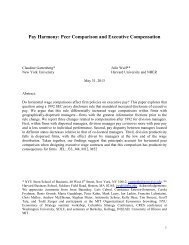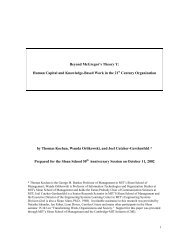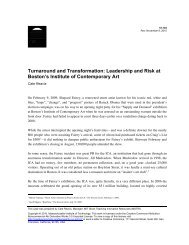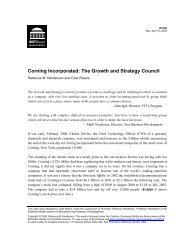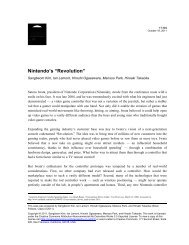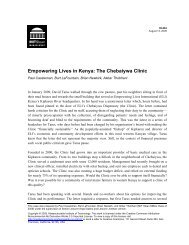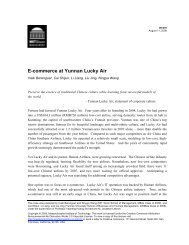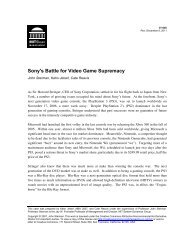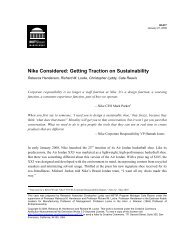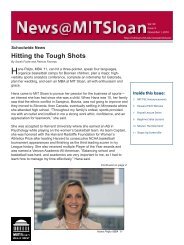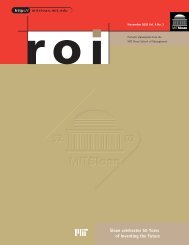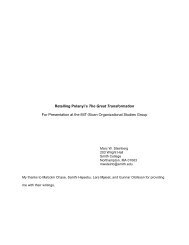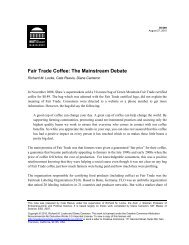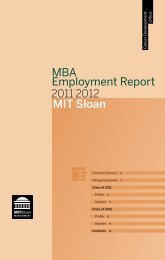Understanding earnings quality - MIT Sloan School of Management
Understanding earnings quality - MIT Sloan School of Management
Understanding earnings quality - MIT Sloan School of Management
Create successful ePaper yourself
Turn your PDF publications into a flip-book with our unique Google optimized e-Paper software.
management related to incentives provided by control mechanisms, and perhaps react favorably to it,<br />
is limited.<br />
5.4 Auditors as determinants <strong>of</strong> <strong>earnings</strong> <strong>quality</strong><br />
The impact <strong>of</strong> auditors on EQ derives from their role in mitigating intentional and<br />
unintentional misstatements. The ability <strong>of</strong> an auditor to mitigate misstatements is a function <strong>of</strong> both<br />
the auditor’s ability to detect a material misstatement and to adjust for or report it (DeAngelo, 1981).<br />
Researchers predict that an auditor’s ability to detect errors is a function <strong>of</strong> auditor effort and<br />
effectiveness. Researchers predict that an auditor’s incentives to report or correct errors depends on<br />
factors such as litigation risk, reputation costs, and auditor independence (e.g., Caramanis and<br />
Lennox, 2008).<br />
The two most commonly studied features <strong>of</strong> auditors are audit firm size and fee structures.<br />
Both features can be correlated with an auditor’s ability to detect errors and an auditor’s incentives<br />
to report, which makes it difficult to disentangle the reason for the auditor’s impact on <strong>quality</strong>.<br />
5.4.1 Studies <strong>of</strong> auditor size<br />
Firms with Big-X auditors 58 have significantly lower discretionary accruals than firms with<br />
non-Big-X auditors (Becker, DeFond, Jiambalvo, and Subramanyam, 1998; Francis, Maydew, and<br />
Sparks, 1999; Kim, Chung, and Firth, 2003). Petroni and Beasley (1996) do not find that the<br />
accuracy and bias <strong>of</strong> the loss reserve account in property-casualty insurers in the insurance industry<br />
varies based on audit firm size, but Gaver and Paterson (2001) find that weak insurers do not<br />
understate their reserve account when they have both Big-six auditors and Big-six actuaries. While<br />
these studies consistently suggest that effective auditing limits <strong>earnings</strong> management, Dechow et al.<br />
58 Big-eight, Big-six, or Big-five, depending on the timing <strong>of</strong> the study.<br />
102



